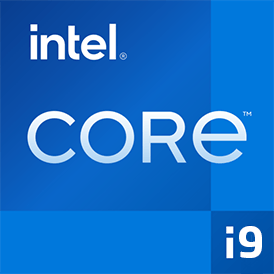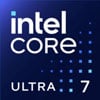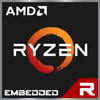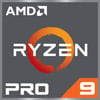
Intel Core i9-10850K Benchmark, Test and specs
Last updated:
The Intel Core i9-10850K has 10 cores with 20 threads and is based on the 10. gen of the Intel Core i9 series. The processor uses a mainboard with the LGA 1200 socket and was released in Q3/2020. The Intel Core i9-10850K scores 1,411 points in the Geekbench 5 single-core benchmark. In the Geekbench 5 multi-core benchmark, the result is 11,250 points.

| Name: | Intel Core i9-10850K |
|---|---|
| Family: | Intel Core i9 (78) |
| CPU group: | Intel Core i 10000 (43) |
| Architecture: | Comet Lake S |
| Segment: | Desktop / Server |
| Generation: | 10 |
| Predecessor: | -- |
| Successor: | -- |
CPU Cores and Base Frequency
The Intel Core i9-10850K has 10 CPU cores and can calculate 20 threads in parallel. The clock frequency of the Intel Core i9-10850K is 3.60 GHz (5.20 GHz). The number of CPU cores greatly affects the speed of the processor and is an important performance indicator.
| CPU Cores / Threads: | 10 / 20 |
|---|---|
| Core architecture: | normal |
| Cores: | 10x |
| Hyperthreading / SMT: | Yes |
|---|---|
| Overclocking: | Yes |
| Frequency: | 3.60 GHz |
| Turbo Frequency (1 Core): | 5.20 GHz |
| Turbo Frequency (10 Cores): | 4.80 GHz |
Internal Graphics
The Intel Core i9-10850K has integrated graphics, called iGPU for short. Specifically, the Intel Core i9-10850K uses the Intel UHD Graphics 630, which has 192 texture shaders and 24 execution units. The iGPU uses the system's main memory as graphics memory and sits on the processor's die.
| GPU name: | Intel UHD Graphics 630 |
|---|---|
| GPU frequency: | 0.35 GHz |
| GPU (Turbo): | 1.20 GHz |
| Compute units: | 24 |
| Shader: | 192 |
| Hardware Raytracing: | No |
| Release date: | Q4/2017 |
| Max. displays: | 3 |
|---|---|
| Generation: | 9.5 |
| Direct X: | 12 |
| Technology: | 14 nm |
| Max. GPU Memory: | 64 GB |
| Frame Generation: | No |
Hardware codec support
A photo or video codec that is accelerated in hardware can greatly accelerate the working speed of a processor and extend the battery life of notebooks or smartphones when playing videos.
| h265 / HEVC (8 bit): | Decode / Encode |
|---|---|
| h265 / HEVC (10 bit): | Decode / Encode |
| h264: | Decode / Encode |
| VP8: | Decode / Encode |
| VP9: | Decode / Encode |
| AV1: | No |
|---|---|
| AVC: | Decode / Encode |
| VC-1: | Decode |
| JPEG: | Decode / Encode |
Memory & PCIeThe processor can use up to 128 GB memory in 2 (Dual Channel) memory channels. The maximum memory bandwidth is 46.9 GB/s. The memory type as well as the amount of memory can greatly affect the speed of the system. |
|
| Memory type: | Memory bandwidth: |
|---|---|
| DDR4-2933 | 46.9 GB/s |
| Max. Memory: | 128 GB |
| Memory channels: | 2 (Dual Channel) |
| ECC: | No |
| PCIe: | 3.0 x 16 |
| PCIe Bandwidth: | 15.8 GB/s |
Thermal ManagementThe thermal design power (TDP for short) of the processor is 125 W. The TDP specifies the necessary cooling solution that is required to cool the processor sufficiently. The TDP usually gives a rough idea of the actual power consumption of the CPU. |
|
|---|---|
| TDP (PL1 / PBP): | 125 W |
| TDP (PL2): | 250 W / 56 s |
| TDP up: | -- |
| TDP down: | 95 W |
| Tjunction max.: | 100 °C |
Technical details
The Intel Core i9-10850K is made in 14 nm. The smaller the manufacturing process of a CPU, the more modern and energy-efficient it is. Overall, the processor has 22.50 MB cache. A large cache can greatly speed up the processor's speed in some cases such as games.
| Technology: | 14 nm |
|---|---|
| Chip design: | Monolithic |
| Socket: | LGA 1200 |
| L2-Cache: | 2.50 MB |
| L3-Cache: | 20.00 MB |
| AES-NI: | Yes |
| Operating systems: | Windows 10, Windows 11, Linux |
| Virtualization: | VT-x, VT-x EPT, VT-d |
|---|---|
| Instruction set (ISA): | x86-64 (64 bit) |
| ISA extensions: | SSE4.1, SSE4.2, AVX2 |
| Release date: | Q3/2020 |
| Release price: | 446 $ |
| Part Number: | -- |
| Documents: | Technical data sheet |
Rate this processor
Benchmark results

The benchmark results for the Intel Core i9-10850K have been carefully checked by us. We only publish benchmark results that have been created by us or that have been submitted by a visitor and then checked by a team member. All results are based on and fullfill our benchmark guidelines.
Cinebench R23 (Single-Core)
Cinebench R23 is the successor of Cinebench R20 and is also based on the Cinema 4 Suite. Cinema 4 is a worldwide used software to create 3D forms. The single-core test only uses one CPU core, the amount of cores or hyperthreading ability doesn't count.

|
Intel Core i9-10900K
10C 20T @ 5.30 GHz |
||

|
AMD Ryzen 9 3950X
16C 32T @ 4.70 GHz |
||

|
AMD Ryzen 5 5600H
6C 12T @ 4.20 GHz |
||
|
|
Intel Core i9-10850K
10C 20T @ 5.20 GHz |
||

|
AMD Ryzen 7 5700X3D
8C 16T @ 4.10 GHz |
||

|
AMD Ryzen 5 PRO 5675U
6C 12T @ 4.30 GHz |
||

|
AMD Ryzen 5 PRO 5650U
6C 12T @ 4.20 GHz |
||
Cinebench R23 (Multi-Core)
Cinebench R23 is the successor of Cinebench R20 and is also based on the Cinema 4 Suite. Cinema 4 is a worldwide used software to create 3D forms. The multi-core test involves all CPU cores and taks a big advantage of hyperthreading.

|
Intel Core i5-12600K
10C 16T @ 4.50 GHz |
||

|
AMD EPYC 7351
16C 32T @ 2.90 GHz |
||

|
Intel Core Ultra 7 155H
16C 22T @ 4.20 GHz |
||
|
|
Intel Core i9-10850K
10C 20T @ 4.80 GHz |
||

|
Intel Core i7-12700HL
14C 20T @ 3.80 GHz |
||

|
Intel Core i5-13490F
10C 16T @ 4.20 GHz |
||

|
Intel Core i9-12900H
14C 20T @ 3.80 GHz |
||
Geekbench 5, 64bit (Single-Core)
Geekbench 5 is a cross plattform benchmark that heavily uses the systems memory. A fast memory will push the result a lot. The single-core test only uses one CPU core, the amount of cores or hyperthreading ability doesn't count.

|
AMD Ryzen 7 3800XT
8C 16T @ 4.70 GHz |
||

|
AMD Ryzen 9 3900XT
12C 24T @ 4.70 GHz |
||

|
AMD Ryzen 5 5500GT
6C 12T @ 4.40 GHz |
||
|
|
Intel Core i9-10850K
10C 20T @ 5.20 GHz |
||

|
AMD Ryzen 9 3950X
16C 32T @ 4.70 GHz |
||

|
Intel Xeon E-2274G
4C 8T @ 4.90 GHz |
||

|
Intel Core i3-11100B
4C 8T @ 4.40 GHz |
||
Geekbench 5, 64bit (Multi-Core)
Geekbench 5 is a cross plattform benchmark that heavily uses the systems memory. A fast memory will push the result a lot. The multi-core test involves all CPU cores and taks a big advantage of hyperthreading.

|
AMD Ryzen 7 7840HS
8C 16T @ 4.25 GHz |
||

|
AMD Ryzen 7 PRO 7840HS
8C 16T @ 4.25 GHz |
||

|
AMD Ryzen 7 5700X3D
8C 16T @ 3.00 GHz |
||
|
|
Intel Core i9-10850K
10C 20T @ 4.80 GHz |
||

|
Intel Xeon W-2155
10C 20T @ 4.00 GHz |
||

|
Intel Core i5-13490F
10C 16T @ 4.20 GHz |
||

|
AMD EPYC 7272
12C 24T @ 3.10 GHz |
||
Geekbench 6 (Single-Core)
Geekbench 6 is a benchmark for modern computers, notebooks and smartphones. What is new is an optimized utilization of newer CPU architectures, e.g. based on the big.LITTLE concept and combining CPU cores of different sizes. The single-core benchmark only evaluates the performance of the fastest CPU core, the number of CPU cores in a processor is irrelevant here.

|
AMD EPYC 7313
16C 32T @ 3.70 GHz |
||

|
AMD EPYC 7443
24C 48T @ 4.00 GHz |
||

|
Intel Xeon E-2288G
8C 16T @ 5.00 GHz |
||
|
|
Intel Core i9-10850K
10C 20T @ 5.20 GHz |
||

|
AMD Ryzen Threadripper 3970X
32C 64T @ 4.50 GHz |
||

|
AMD EPYC 7713
64C 128T @ 3.68 GHz |
||

|
AMD EPYC 7313P
16C 32T @ 3.70 GHz |
||
Geekbench 6 (Multi-Core)
Geekbench 6 is a benchmark for modern computers, notebooks and smartphones. What is new is an optimized utilization of newer CPU architectures, e.g. based on the big.LITTLE concept and combining CPU cores of different sizes. The multi-core benchmark evaluates the performance of all of the processor's CPU cores. Virtual thread improvements such as AMD SMT or Intel's Hyper-Threading have a positive impact on the benchmark result.

|
Intel Core i5-12500H
12C 16T @ 3.20 GHz |
||

|
AMD Ryzen 9 6900HX
8C 16T @ 4.20 GHz |
||

|
Intel Core i9-7920X
12C 24T @ 3.70 GHz |
||
|
|
Intel Core i9-10850K
10C 20T @ 4.80 GHz |
||

|
AMD Ryzen 7 7735HS
8C 16T @ 3.20 GHz |
||

|
Intel Core i7-1280P
14C 20T @ 3.00 GHz |
||

|
AMD Ryzen 9 6900HS
8C 16T @ 3.80 GHz |
||
Cinebench R20 (Single-Core)
Cinebench R20 is the successor of Cinebench R15 and is also based on the Cinema 4 Suite. Cinema 4 is a worldwide used software to create 3D forms. The single-core test only uses one CPU core, the amount of cores or hyperthreading ability doesn't count.

|
AMD Ryzen 7 5800U
8C 16T @ 4.40 GHz |
||

|
AMD Ryzen 7 3800XT
8C 16T @ 4.70 GHz |
||

|
AMD Ryzen 9 3900XT
12C 24T @ 4.70 GHz |
||
|
|
Intel Core i9-10850K
10C 20T @ 5.20 GHz |
||

|
AMD Ryzen 5 5500
6C 12T @ 4.20 GHz |
||

|
AMD Ryzen 9 3950X
16C 32T @ 4.70 GHz |
||

|
AMD Ryzen 5 5600H
6C 12T @ 4.20 GHz |
||
Cinebench R20 (Multi-Core)
Cinebench R20 is the successor of Cinebench R15 and is also based on the Cinema 4 Suite. Cinema 4 is a worldwide used software to create 3D forms. The multi-core test involves all CPU cores and taks a big advantage of hyperthreading.

|
Intel Core i9-10900
10C 20T @ 4.60 GHz |
||

|
Intel Core i9-12900H
14C 20T @ 3.80 GHz |
||

|
Intel Xeon Gold 6148
20C 40T @ 3.00 GHz |
||
|
|
Intel Core i9-10850K
10C 20T @ 4.80 GHz |
||

|
Apple M3 Max (16-CPU 40-GPU)
16C 16T @ 3.60 GHz |
||

|
Intel Core i9-11900KF
8C 16T @ 4.80 GHz |
||

|
Intel Core i9-11900K
8C 16T @ 4.80 GHz |
||
iGPU - FP32 Performance (Single-precision GFLOPS)
The theoretical computing performance of the internal graphics unit of the processor with simple accuracy (32 bit) in GFLOPS. GFLOPS indicates how many billion floating point operations the iGPU can perform per second.

|
AMD A8-3800
AMD Radeon HD 6550D @ 0.60 GHz |
||

|
Qualcomm Snapdragon 820
Qualcomm Adreno 530 @ 0.62 GHz |
||

|
Qualcomm Snapdragon 821
Qualcomm Adreno 530 @ 0.62 GHz |
||
|
|
Intel Core i9-10850K
Intel UHD Graphics 630 @ 1.20 GHz |
||

|
Intel Core i9-10880H
Intel UHD Graphics 630 @ 1.20 GHz |
||

|
AMD Ryzen Embedded R2312
AMD Radeon RX Vega 3 (Raven Ridge) @ 1.20 GHz |
||

|
AMD Ryzen 3 5125C
AMD Radeon RX Vega 3 (Raven Ridge) @ 1.20 GHz |
||
Blender 3.1 Benchmark
In the Blender Benchmark 3.1, the scenes "monster", "junkshop" and "classroom" are rendered and the time required by the system is measured. In our benchmark we test the CPU and not the graphics card. Blender 3.1 was presented as a standalone version in March 2022.

|
Intel Core i9-11900K
8C 16T @ 4.80 GHz |
||

|
Intel Core i9-10900K
10C 20T @ 4.90 GHz |
||

|
Intel Core i9-10900KF
10C 20T @ 4.90 GHz |
||
|
|
Intel Core i9-10850K
10C 20T @ 4.80 GHz |
||

|
AMD Ryzen 5 7600X
6C 12T @ 5.30 GHz |
||

|
AMD Ryzen 9 3900
12C 24T @ 3.10 GHz |
||

|
AMD Ryzen 9 PRO 3900
12C 24T @ 3.10 GHz |
||
Estimated results for PassMark CPU Mark
Some of the CPUs listed below have been benchmarked by CPU-monkey. However the majority of CPUs have not been tested and the results have been estimated by a CPU-monkey’s secret proprietary formula. As such they do not accurately reflect the actual Passmark CPU mark values and are not endorsed by PassMark Software Pty Ltd.

|
AMD Ryzen 9 5900HX
8C 16T @ 4.20 GHz |
||

|
AMD Ryzen Threadripper 1920X
12C 24T @ 3.60 GHz |
||

|
Intel Core i7-11700B
8C 16T @ 4.00 GHz |
||
|
|
Intel Core i9-10850K
10C 20T @ 4.80 GHz |
||

|
Intel Xeon Gold 6132
14C 28T @ 2.90 GHz |
||

|
Intel Xeon W-1290P
10C 20T @ 4.40 GHz |
||

|
AMD Ryzen 7 3700X
8C 16T @ 4.00 GHz |
||
Blender 2.81 (bmw27)
Blender is a free 3D graphics software for rendering (creating) 3D bodies, which can also be textured and animated in the software. The Blender benchmark creates predefined scenes and measures the time (s) required for the entire scene. The shorter the time required, the better. We selected bmw27 as the benchmark scene.

|
AMD Ryzen Threadripper 1950X
16C 32T @ 3.50 GHz |
||

|
Intel Core i9-10900K
10C 20T @ 4.90 GHz |
||

|
Intel Core i9-10900KF
10C 20T @ 4.90 GHz |
||
|
|
Intel Core i9-10850K
10C 20T @ 4.80 GHz |
||

|
Intel Core i9-10900X
10C 20T @ 4.50 GHz |
||

|
Intel Core i9-7900X
10C 20T @ 4.00 GHz |
||

|
Intel Core i9-9920X
12C 24T @ 4.30 GHz |
||
CPU-Z Benchmark 17 (Single-Core)
The CPU-Z benchmark measures a processor's performance by measuring the time it takes the system to complete all benchmark calculations. The faster the benchmark is completed, the higher the score.

|
AMD Ryzen 5 5500
6C 12T @ 3.60 GHz |
||

|
Intel Core i7-11800H
8C 16T @ 3.40 GHz |
||

|
Intel Core i9-10900K
10C 20T @ 4.90 GHz |
||
|
|
Intel Core i9-10850K
10C 20T @ 4.80 GHz |
||

|
Intel Core i5-11400
6C 12T @ 4.20 GHz |
||

|
Intel Core i7-10700KF
8C 16T @ 4.90 GHz |
||

|
AMD Ryzen 5 5600X3D
6C 12T @ 4.20 GHz |
||
CPU-Z Benchmark 17 (Multi-Core)
The CPU-Z benchmark measures a processor's performance by measuring the time it takes the system to complete all benchmark calculations. The faster the benchmark is completed, the higher the score.

|
Intel Core i7-12700F
12C 20T @ 2.10 GHz |
||

|
Intel Core i9-10900KF
10C 20T @ 3.70 GHz |
||

|
Intel Core i9-10900K
10C 20T @ 3.70 GHz |
||
|
|
Intel Core i9-10850K
10C 20T @ 3.60 GHz |
||

|
AMD Ryzen Threadripper 2920X
12C 24T @ 3.50 GHz |
||

|
Intel Core i9-10920X
12C 24T @ 3.50 GHz |
||

|
Intel Core i9-10900
10C 20T @ 2.80 GHz |
||
Cinebench R15 (Single-Core)
Cinebench R15 is the successor of Cinebench 11.5 and is also based on the Cinema 4 Suite. Cinema 4 is a worldwide used software to create 3D forms. The single-core test only uses one CPU core, the amount of cores or hyperthreading ability doesn't count.

|
Intel Core i9-10900K
10C 20T @ 5.30 GHz |
||

|
Intel Core i9-10900
10C 20T @ 5.20 GHz |
||

|
Intel Core i9-10900F
10C 20T @ 5.20 GHz |
||
|
|
Intel Core i9-10850K
10C 20T @ 5.20 GHz |
||

|
Intel Core i7-10700KF
8C 16T @ 5.10 GHz |
||

|
Intel Core i7-10700K
8C 16T @ 5.10 GHz |
||

|
AMD Ryzen 5 PRO 6650U
6C 12T @ 4.40 GHz |
||
Cinebench R15 (Multi-Core)
Cinebench R15 is the successor of Cinebench 11.5 and is also based on the Cinema 4 Suite. Cinema 4 is a worldwide used software to create 3D forms. The multi-core test involves all CPU cores and taks a big advantage of hyperthreading.

|
Intel Xeon E5-2697 v4
18C 36T @ 2.80 GHz |
||

|
Intel Core i9-12900H
14C 20T @ 3.80 GHz |
||

|
Intel Core i9-12900HK
14C 20T @ 3.80 GHz |
||
|
|
Intel Core i9-10850K
10C 20T @ 4.80 GHz |
||

|
AMD Ryzen 7 5800X
8C 16T @ 4.40 GHz |
||

|
Intel Core i5-12600KF
10C 16T @ 4.50 GHz |
||

|
Intel Core i5-12600K
10C 16T @ 4.50 GHz |
||
Benchmarks

Cinebench R23 (SC)
586 entries
586 entries

Cinebench R23 (MC)
565 entries
565 entries

Geekbench 5 (SC)
2,488 entries
2,488 entries

Geekbench 5 (MC)
2,461 entries
2,461 entries

Geekbench 6 (SC)
1,754 entries
1,754 entries

Geekbench 6 (MC)
1,702 entries
1,702 entries

Cinebench R20 (SC)
656 entries
656 entries

Cinebench R20 (MC)
604 entries
604 entries

FP32 SP (iGPU)
2,026 entries
2,026 entries

3DMark Timespy (iGPU)
512 entries
512 entries

Blender 3.1 Benchmark
212 entries
212 entries

PassMark CPU-Mark
2,391 entries
2,391 entries

Blender 2.81 (bmw27)
190 entries
190 entries

CPU-Z Benchmark 17 (SC)
231 entries
231 entries

CPU-Z Benchmark 17 (MC)
733 entries
733 entries

Monero Hashrate
94 entries
94 entries

V-Ray CPU-Render
249 entries
249 entries

Cinebench R15 (SC)
1,106 entries
1,106 entries

Cinebench R15 (MC)
1,101 entries
1,101 entries
Description of the processor
The AMD Ryzen 5 3400G is a quad-core processor from AMD. It clocks its 4 cores with 3.6 GHz, but can increase the clock rate to 3.7 GHz (load on all cores) or even 3.9 GHz (single core load).It supports Hyper-Threading technology and thus comes to 8 logical processors (4+4). Both the CPU and the iGPU part of the processor can be overclocked. The iGPU in the AMD Ryzen 5 3400G is an AMD Radeon Vega 11 with eleven execution units. The iGPU supports up to 3 screens. Modern video codecs via hardware are no problem with the graphics card, as are simple and also newer games up to Full HD resolution.
The processor supports fast DDR4-2933 working memory, but can also address OC memory with even higher clock rates. Since the AMD Radeon Vega 11 graphics card benefits greatly from fast working memory, we recommend at least the officially supported DDR4-2933 memory, even DDR4-3600 or similar is better. To ensure that the memory bandwidth is sufficient even in newer games, we also recommend running the RAM in dual-channel mode, i.e. using two memory modules instead of just one.
PCIe 3.0 is supported with 16 lines, which is typical for the Zen+ processors for the socket AM4. Modern virtualization features are also available, as well as the possibility to accelerate AES-Ni encryption operations via hardware. This makes it possible to encrypt the operating system drive, for example, without performance losses.
The AMD Ryzen 5 3400G is based on the Zen+ architecture (Picasso), which is the 2nd generation of AMDs Zen CPU design. It is manufactured in 12 nm and already has a fairly high TDP of 65 watts. The AMD Ryzen 5 3400G will be released in Q2/2019 at an introductory price of approximately 165 Euros.
Popular comparisons
back to index




